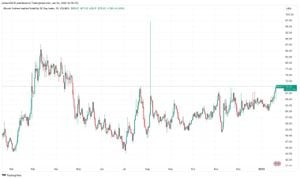Krzysztof Bosak, the prominent leader of the National Movement, is set to participate in the upcoming Patriots for Europe Summit, organized by Hungary's Viktor Orban. This gathering, scheduled for Saturday in Madrid, aims to unite various far-right parties across Europe under the banner of promoting nationalist ideologies.
Notably, Bosak has openly conveyed his plans to engage with Orban during the summit. "I will be seeing the Prime Minister Orban," Bosak confirmed, indicating the importance of this collaboration among nationalist factions.
This week, Bosak had also met with Hungary's Minister of Foreign Affairs, Peter Szijjarto, where discussions revolved around significant challenges confronting Europe, Poland, and Hungary—particularly in the wake of Donald Trump's presidency. Topics included the perceived harmful regulations imposed by the European Union, emphasizing the need for stronger national autonomy.
Szijjarto attended this meeting alongside the informal gathering of EU ministers on competitiveness and trade, which was part of Poland's presidency of the EU Council. Bosak highlighted how their discussions were rooted in party cooperation, indicating solidarity between his National Movement and Orban's ruling Fidesz party.
Bosak's involvement with the Patriots for Europe group does not occur without controversy. Following his social media post about the meeting with Szijjarto, Radosław Sikorski, head of Poland's Ministry of Foreign Affairs, scolded Bosak publicly. "I hope the marshal insisted on the enforcement of the Polish Prosecutor's request for the European Arrest Warrant," Sikorski stated, referencing the case of Marcin Romanowski, who has faced significant legal scrutiny and recently obtained political asylum in Hungary.
This exchange highlights not only the political tension between Bosak's nationalists and more traditional political entities but also casts light on the broader repercussions of their alliance with parties like Fidesz and others within the European Parliament.
The Patriots for Europe coalition has grown since its inception by Orban and now includes notable figures such as Marine Le Pen’s National Rally, Austria's Freedom Party (FPOe), Portugal's Chega, and Spain's VOX party. These groups together form the third-largest faction within the European Parliament, amplifying their collective voice against mainstream EU policies.
The upcoming summit promises to be significant, with its theme of "Make Europe Great Again" directly referencing Trump's political mantra. This reflection of populistic sentiment indicates their future agenda which will likely focus on resistance against EU regulations, rallying support around nationalistic ideals, and cooperation among right-wing parties.
With members such as Anna Bryłka and Tomasz Buczek from Bosak's National Movement joining the coalition last year, the expected outcomes of the summit will closely tie to these broader anti-EU sentiments. They are anticipated to forge new ground on issues affecting member states collectively, amplifying their populist message.
Following this summit, the influence of these meetings on future European policies remains to be seen, but the stakes are high as they appear poised to challenge the existing political order within the continent.
While the collaboration among these parties could breathe new life to their political aspirations, the ramifications of their unity will likely resonate beyond their immediate goals, potentially altering the dynamics within the EU at large.
Speculation continues about whether such alliances can effectively translate their shared goals of sovereignty and independence from what they term the overreach of the EU bureaucracy, and whether they can turn dialogue from events like the Madrid summit onto actionable policies.
Keep an eye on how Bosak’s engagement with these leaders shapes the narrative leading up to the next elections and whether their combined efforts can revitalize the far-right across Europe.



